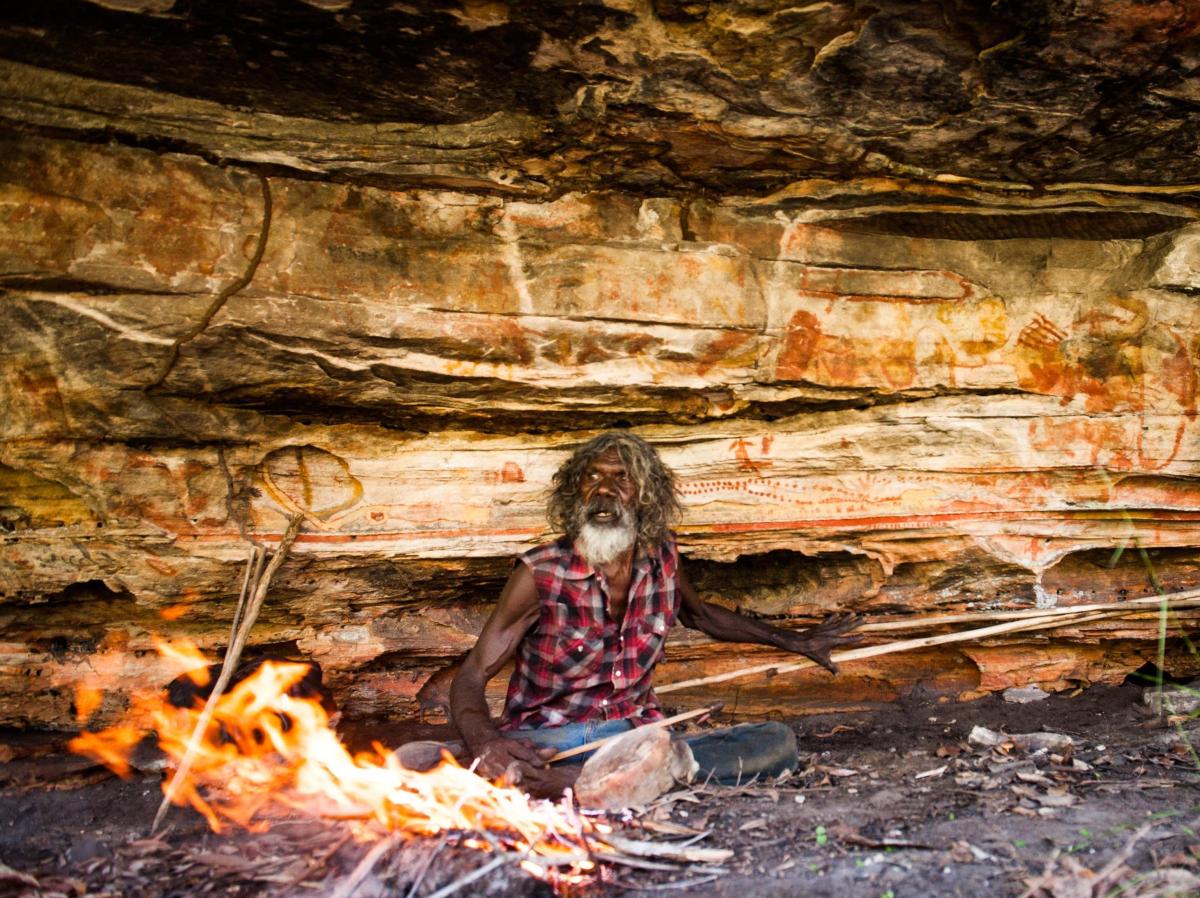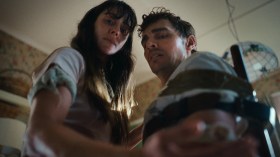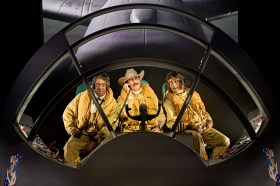The routine becomes the extraordinary in Charlie’s Country, from the way the film’s name states its scenario so plainly while leaving room for many further interpretations, to the manner in which its lead, David Gulpilil (Satellite Boy), says so much with words yet more through the sight of his unadorned face in the middle of the screen. In chronicling its titular character’s plight in his native nation, Rolf de Heer’s (The King is Dead) latest and fourteenth work finds complexity in minimalism and meaning in the obvious. The details are frank; their significance is multifaceted.
Truly a product of close collaborators, Charlie’s Country is the second substantial pairing between its key creative forces following The Tracker, after an intervening project – Ten Canoes – went ahead without the actor’s prolonged presence. de Heer helms, Gulpilil stars, and both contributed to the script. It is the latter’s story through and through, however, every aspect torn from the broad strokes of his life. The real-world experience that informs the heartbreaking semi-autobiographical screen tale, one of a man born into traditional ways, accustomed to remote living, and unable to adjust to colonizing modernity despite several attempts, is just as tough but tender.
The recipient of the best actor award in the Un Certain Regard competition at the 2014 Cannes Film Festival for his efforts, a sometimes cheeky, sometimes weary Gulpilil dominates the film by design and with devastation and determination, just as the long takes demonstrate that peer directly into his eyes. One such shot opens the feature, establishing a style and a visual and thematic motif. First, Charlie is seen in a makeshift tent that forms his outback shelter, looming large within the frame but clearly established against his setting. As he moves from his rural community to deeper into the bush, then through several institutions to among the long grass dwellers of Darwin and back home again, he remains a man defined by his surroundings.
It is in an alcohol-free zone in the Northern Territory that the feature finds its foundation, an area filled with those still willing to bend the rules. Charlie is the amiable figure everyone in town knows, whether hunting with his pal Black Pete (Peter Djigirr, Ten Canoes), or bantering with the local law enforcement – especially policeman Luke (Luke Ford, Animal Kingdom) – in their many exchanges. A specific altercation over weapons and gun licenses sparks a turn that both represents the culmination of Charlie’s life to date, and changes his future.
As specific to Gulpilil’s own tale as the film is, one of de Heer’s greatest achievements is ensuring the universality of the narrative is always apparent. With the actor’s past a matter of record, from his catapulting to fame at age 17 in Walkabout to a recent stint in prison, the parallels can’t be escaped even as details are altered, but their broad application to an entire populace is unmistakable. Easily seen as the successor to Samson and Delilah in its depiction of the contemporary condition of Australia’s indigenous peoples, Charlie’s Country draws its power from the mournful commonality with the reality of many others. Watching the progression of the narrative’s events is far from easy, nor should it be, though warmth and humour temper the evident bleakness.
Shots of Gulpilil staring not just at but through the camera while cast against his environment – be it bushland, inner city trees, a hospital bed or barbed wire – recur in the slow and stately effort, emphasising the film’s message as well as its aesthetic beauty and intricacy. It is in each segment, littered throughout the feature, that the stellar combination of de Heer’s perceptiveness and Gulpilli’s talent becomes evident. With fearlessness and finesse that applies equally to its story, subject and statement, the filmmaker shows his inspiration as one of Australia’s cinematic treasures – but it also shows the cost of his modest stardom, as a moving microcosm of the bigger picture of the nation’s indigenous people.
Rating: 4 ½ out of 5 stars
Charlie’s Country
Director: Rolf de Heer
Australia, 2013, 108 mins
Release date: July 17
Distributor: eOne
Rated: M
Actors:
Director:
Format:
Country:
Release:





